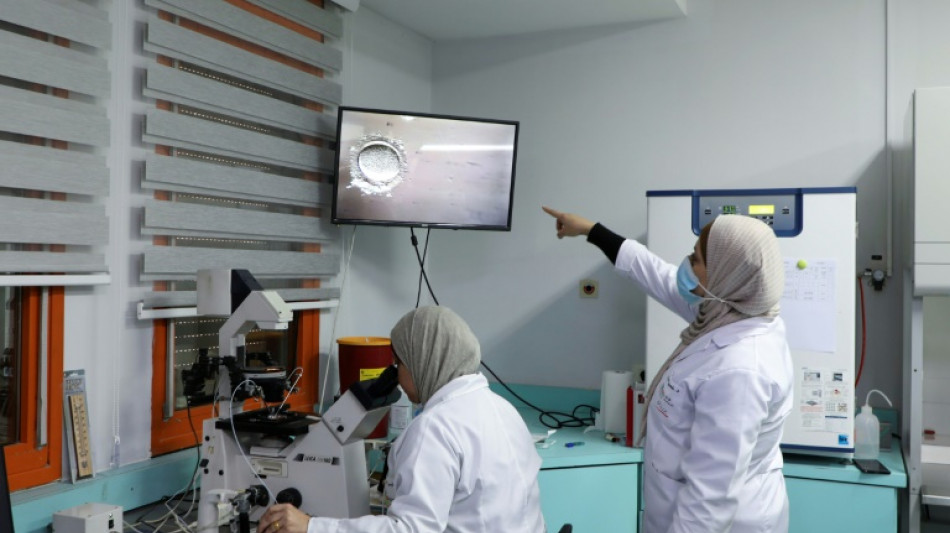
-
 French lawmakers reject wealth tax proposal in budget debate
French lawmakers reject wealth tax proposal in budget debate
-
Premier League blames European expansion for lack of Boxing Day games

-
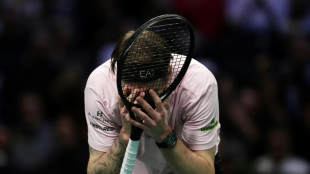 Bublik sets up Auger-Aliassime semi-final at Paris Masters
Bublik sets up Auger-Aliassime semi-final at Paris Masters
-
World's most expensive coffee goes on sale in Dubai at $1,000 a cup
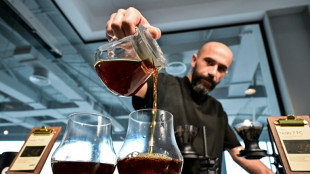
-
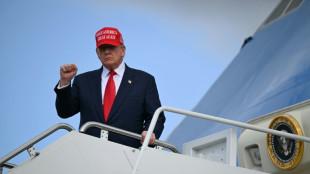 Trump stirs global tensions, confusion with nuclear test order
Trump stirs global tensions, confusion with nuclear test order
-
Panic across US as health insurance costs set to surge

-
 Court eases ban on Russian lugers but Olympic hopes on thin ice
Court eases ban on Russian lugers but Olympic hopes on thin ice
-
England captain Itoje targets Autumn Nations clean sweep

-
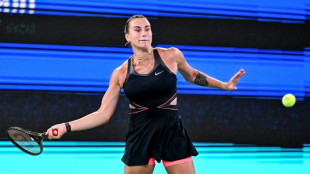 Calmer Sabalenka sets sights on WTA Finals crown
Calmer Sabalenka sets sights on WTA Finals crown
-
Spurs boosted by Romero return for Chelsea clash

-
 Sudan's RSF claims arrests as UN warns of 'horrendous' atrocities in Darfur
Sudan's RSF claims arrests as UN warns of 'horrendous' atrocities in Darfur
-
US says 'non-market' tactics needed to counter China's rare earth dominance
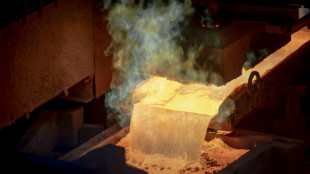
-
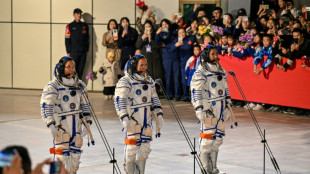 China sends youngest astronaut, mice to space station
China sends youngest astronaut, mice to space station
-
From adored prince to outcast, Andrew's years-long fall from grace

-
 Rodri return fuels Guardiola belief in Man City title challenge
Rodri return fuels Guardiola belief in Man City title challenge
-
China holds send-off ceremony for space station astronauts
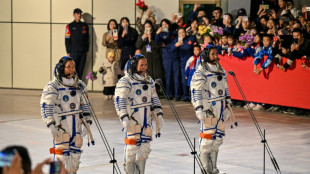
-
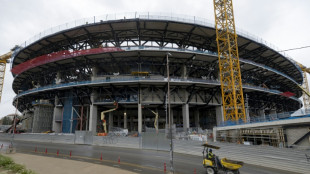 Barcelona to show off unfinished Camp Nou with public training session
Barcelona to show off unfinished Camp Nou with public training session
-
Turkish court jails 11 for life over deadly hotel inferno
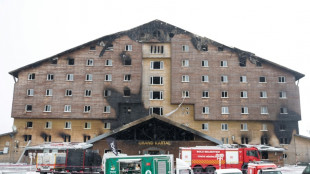
-
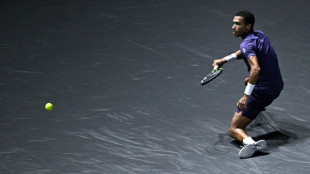 Auger-Aliassime ends Vacherot run to reach Paris Masters semis
Auger-Aliassime ends Vacherot run to reach Paris Masters semis
-
Australia captain Wilson denies Wallabies use 'dangerous' breakdown tactics
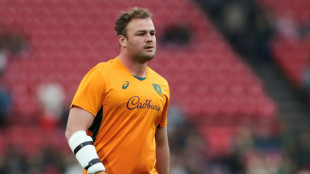
-
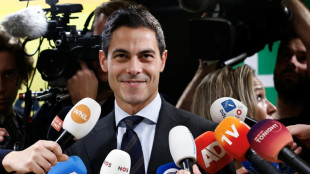 'Populists can be beaten': Dutch centrist Jetten claims election win
'Populists can be beaten': Dutch centrist Jetten claims election win
-
China's suspension of rare earth controls applies to EU: official

-
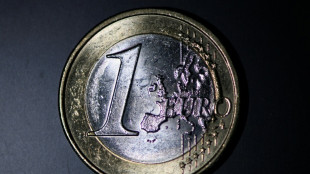 Italy complains about strong euro, urges ECB to cut rates
Italy complains about strong euro, urges ECB to cut rates
-
Louvre to get anti-ramming barriers by year end: minister
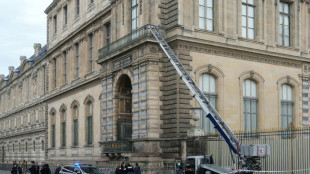
-
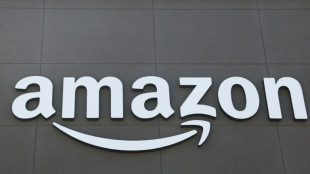 Wall Street bounces on Amazon, Apple earnings
Wall Street bounces on Amazon, Apple earnings
-
AI giants turn to massive debt to finance tech race

-
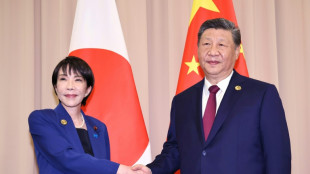 Japan PM says raised 'serious concerns' with Xi on South China Sea, Xinjiang
Japan PM says raised 'serious concerns' with Xi on South China Sea, Xinjiang
-
Shein set to open first physical store in Paris
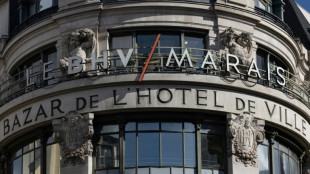
-
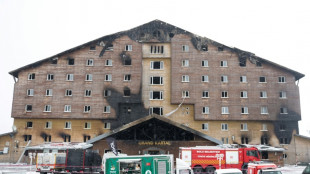 Turkish court jails 11 for life over deadly hotel fire
Turkish court jails 11 for life over deadly hotel fire
-
Hazlewood stars as Australia ease past India to win 2nd T20
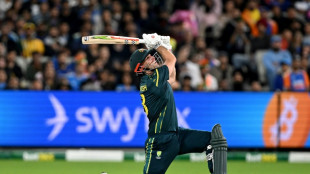
-
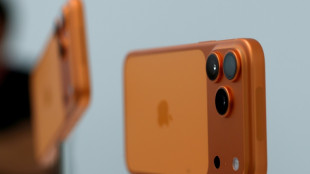 Stocks extend losses tracking AI, Fed and trade
Stocks extend losses tracking AI, Fed and trade
-
Arteta concerned for players' welfare in Arsenal fixture pile-up

-
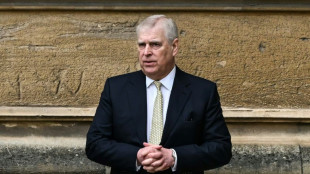 From adored prince to royal outcast, Andrew's protracted downfall
From adored prince to royal outcast, Andrew's protracted downfall
-
Maresca backs 'stupid' Delap to come good for Chelsea

-
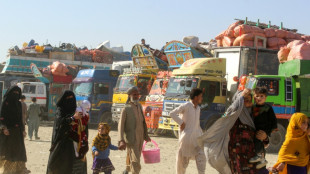 Pakistan, Afghanistan extend ceasefire, to hold another round of peace talks
Pakistan, Afghanistan extend ceasefire, to hold another round of peace talks
-
Sudan's RSF says arrests fighters accused of abuses in El-Fasher

-
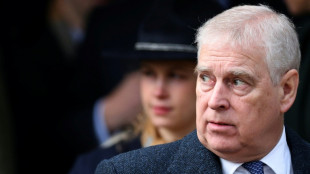 Key dates in the fall of Britain's former prince Andrew
Key dates in the fall of Britain's former prince Andrew
-
Cricket falls silent across Australia after teenager killed by ball

-
 Vinicius Junior in the clear over Clasico outburst
Vinicius Junior in the clear over Clasico outburst
-
UK welcomes king's move to strip Andrew of royal titles

-
 Liverpool must snap losing 'habit', says under-fire Slot
Liverpool must snap losing 'habit', says under-fire Slot
-
Bencic out of Hong Kong last eight as tennis injury list mounts
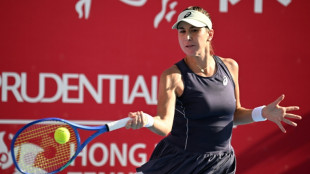
-
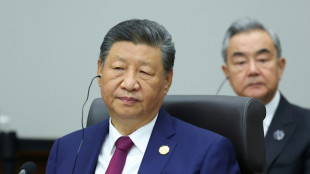 Xi invites Canada PM to China in first meet in 8 years
Xi invites Canada PM to China in first meet in 8 years
-
Chinese defence minister seeks 'trust' with US but cautions over Taiwan
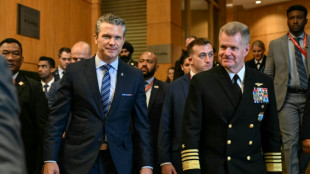
-
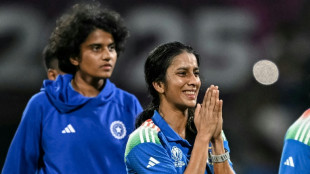 India's Rodrigues beat anxiety and tears to become World Cup star
India's Rodrigues beat anxiety and tears to become World Cup star
-
China, Canada leaders hold first formal talks since 2017
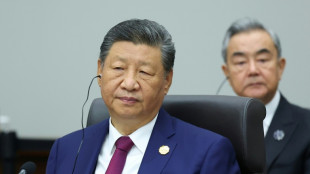
-
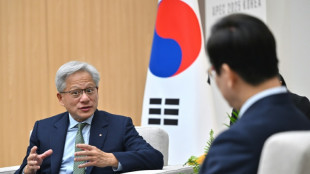 Nvidia to supply 260,000 cutting-edge chips to South Korea
Nvidia to supply 260,000 cutting-edge chips to South Korea
-
Camels replace cows as Kenya battles drought

-
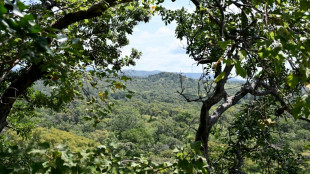 Endangered across west Africa, leopards thrive in I.Coast reserve
Endangered across west Africa, leopards thrive in I.Coast reserve
-
Risky gold rush drives young into Ivory Coast nature park
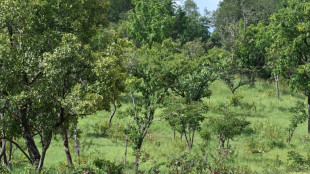
| RYCEF | -1.98% | 15.15 | $ | |
| BCC | 0.25% | 69.355 | $ | |
| CMSC | -0.88% | 23.85 | $ | |
| VOD | 0.5% | 12.03 | $ | |
| SCS | 0.09% | 15.975 | $ | |
| JRI | -0.04% | 13.865 | $ | |
| NGG | -1.1% | 75.225 | $ | |
| RIO | -0.15% | 72.095 | $ | |
| CMSD | -0.74% | 24.18 | $ | |
| RBGPF | 0% | 76 | $ | |
| RELX | -0.52% | 44.14 | $ | |
| BCE | -0.61% | 22.97 | $ | |
| AZN | -0.1% | 82.255 | $ | |
| BTI | 0.36% | 51.465 | $ | |
| GSK | -0.25% | 46.822 | $ | |
| BP | 0.64% | 34.995 | $ |

Arab Israelis flock to West Bank to choose babies' sex
Palestinian fertility clinics in the West Bank are a magnet for would-be Arab Israeli parents seeking boys -- even when risky procedures can endanger the lives of both mother and child.
Yasmine and Jacki, a couple from Israel, have dreamed of having a boy.
Israeli laws strictly regulate selecting a child's sex. So the couple drove three hours from their home in the suburbs of Jerusalem to a clinic in Nablus in the occupied West Bank.
In the waiting room of the Dima Center, Yasmine, 27, glanced nervously at baby portraits on the wall, momentoes from grateful families who successfully conceived through the clinic's in-vitro fertilisation (IVF) programme.
British-trained clinic director Amani Marmash, estimated she holds about 20 consultations a day, half with Palestinians from the West Bank.
The other half are, like Yasmine, Palestinian citizens of Israel, whose forebears remained in what became Israel after 1948, while others fled or were driven from their homes.
Doctors said that most of their patients sought boys to carry on the family name and provide financial support.
"We are looking for a brother for our two daughters," said Jacki, 34. Both he and his wife provided pseudonyms because the subject of IVF remains taboo.
Israel has the highest rate of IVF per capita in the world and offers the treatment free of charge to women citizens up to the age of 45. Women undergoing IVF take hormones before having eggs surgically removed and fertilised outside the womb. The resulting embryos are then implanted in the uterus.
In Israel, as in many other countries, the process is strictly regulated. Israeli women must have had four daughters in order to implant only male embryos.
In the occupied West Bank, "we are barely asked anything," says Yasmine.
- Three to five embryos at a time -
On its Facebook page, the Dima Center highlights a 99.9 percent chance of success in gender selection, without saying that the overall success rate of conception by IVF is much lower.
"Select your baby's gender with the Dima Center and, God willing, your family will be completed with a boy and a girl," reads one post.
IVF has a 60 to 65 percent success rate, in the best cases, Marmash told AFP.
To make up for this, two to three "embryos are transferred into the uterus", said doctor Salam Atabeh, who also works at the clinic.
This practice contradicts international recommendations for just one or two embryos to be implanted, with the exception of three in women aged 40 and older.
A 2019 report on private clinics in the West Bank by the UN Population Fund (UNFPA) found doctors implant three to five embryos in 70 percent of cases, a practice that presents health risks for both mother and child.
Yasmine chose to implant three embryos to lift her chances after a first round failed.
Should the second attempt fail too, Yasmine said she would not hesitate to try a third time.
The operation can cost between 10,000 and 15,000 shekels (2,700 and 4,100 euros), a fortune for many Palestinians. The high cost encourages them to maximise the chances of pregnancy with each attempt.
- 'It's business' -
Dr. Atabeh said he takes care to inform his patients of the risks: ovarian hyperstimulation, premature labour, multiple births, as well as potential dangers for the child.
One gynaecologist told AFP she sees a dozen patients a month in an Israeli hospital for complications related to IVF procedures performed in the West Bank.
Although rare, ovarian hyperstimulation can lead to hospitalisation of the patient for breathing difficulties, nausea or kidney failure, the doctor said, speaking on condition of anonymity.
And after a multiple birth pregnancy, common when more than two embryos are transferred, newborns can spend weeks in intensive care.
"Some babies are handicapped for their whole lives," she said, citing blindness, deafness and flaws in brain development.
"When women come back with triplets and complications, Israel pays for it, not the clinics in the West Bank," she said.
In Ramallah, Hadeel Masri, who heads the women's health and gynaecology unit at the Palestinian health ministry, said the cash-strapped Palestinian Authority's inability to fund a public IVF option had left the sector entirely in private hands.
"We're just exposing women to these risks," she said.
Bassem Abu Hamad, professor of public health at Al-Quds University and a co-author of the UNFPA report said the clinics implant up to five embryos because they "need better results to make more money."
"It's business," he said.
M.Furrer--BTB



